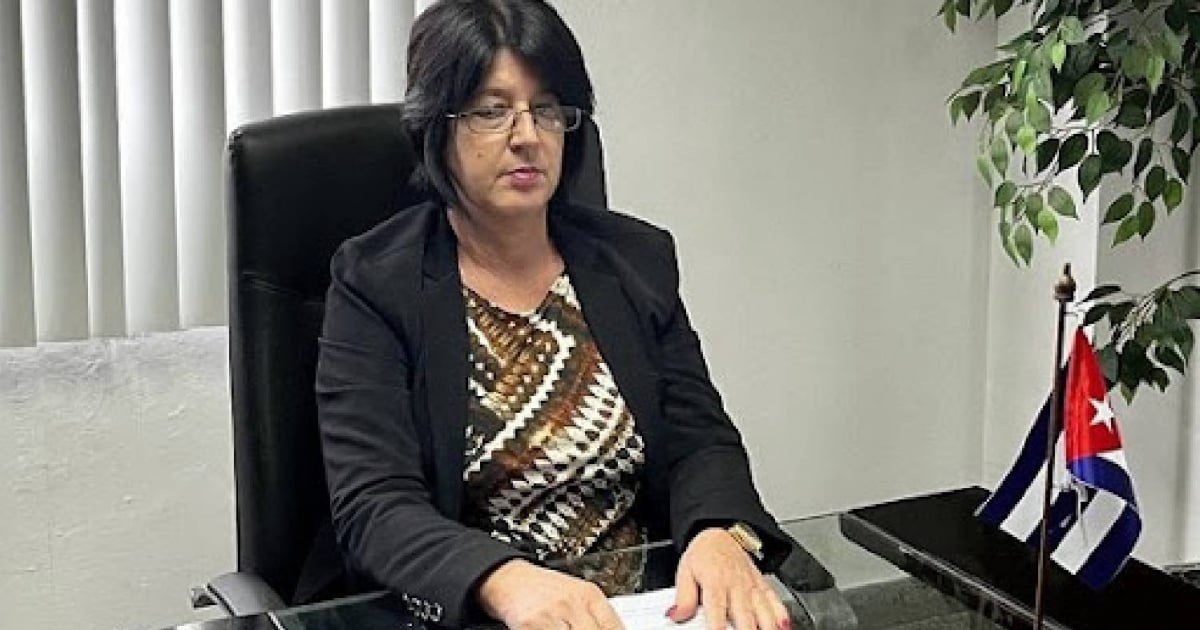Cuba’s Labour and Social Security Minister, Marta Elena Feito Cabrera, has stepped down following a wave of public backlash over comments dismissing the existence of poverty on the island.
Her resignation was announced by the Cuban presidency on social media.
It stated that Feito had “acknowledged her errors” and tendered her resignation due to a “lack of objectivity and sensitivity” in addressing issues central to the country’s governance and political discourse.
The controversy erupted just a day after Feito addressed members of a National Assembly committee, where she made statements that many Cubans viewed as detached from the country’s economic realities.
Speaking about visible poverty in Cuba, Feito claimed that individuals seen on the streets as beggars were merely pretending.
“We have seen people, apparently beggars,” she said.
“But when you look at their hands, look at the clothes these people are wearing, they are disguised as beggars. They are not beggars.”
She went on to argue that street workers, such as those cleaning car windshields at intersections, were living “easy” lives and spending their earnings on alcohol.
Additionally, she accused individuals scavenging through trash bins of doing so for profit, claiming they were reselling recovered materials to avoid paying taxes.
The remarks quickly gained traction on social media, sparking intense criticism and calls for her impeachment.
In a country that has faced mounting economic hardships in recent years, many viewed Feito’s comments as both insensitive and out of touch with the lived experiences of ordinary Cubans.
Even President Miguel Díaz-Canel expressed disapproval, although he refrained from naming Feito directly.
In a post on X (formerly Twitter), Díaz-Canel emphasized the importance of empathy in addressing social vulnerability.
“The lack of sensitivity in addressing vulnerability is highly questionable,” he wrote.
“The revolution cannot leave anyone behind; that is our motto, our militant responsibility.”
Cuba continues to grapple with a severe economic crisis, worsened by longstanding external pressures and internal inefficiencies.
A key factor contributing to the country’s economic decline is the decades-old U.S. trade embargo, first imposed in 1960 after the Cuban Revolution.
The embargo has significantly hampered Cuba’s ability to access essential goods, such as fuel and machinery, and limits international financial transactions.
The embargo remains widely condemned by the international community.
In recent votes at the United Nations, 185 of 193 member states have consistently supported resolutions calling for its end.
However, despite growing global criticism, the United States has maintained the embargo.
Under former President Donald Trump, sanctions against Cuba were further tightened as part of a hardline stance against the island’s Communist government.
Trump’s administration reversed many of the engagement efforts initiated by his predecessor, Barack Obama, who had taken historic steps toward normalizing U.S.-Cuba relations.
Obama re-established diplomatic ties, lifted some travel restrictions, and became the first U.S. president to visit Cuba in nearly a century.
However, the subsequent rollback of those measures under Trump deepened the country’s isolation and economic struggles.
More recently, the Biden administration has continued to apply pressure on the Cuban leadership.
Just last week, the U.S. Department of State announced new sanctions targeting President Díaz-Canel and the luxury Hotel Torre K in central Havana.
It further escalated tensions between the two countries.
Cuba’s economic problems are also compounded by an ongoing energy crisis.
The country has experienced frequent blackouts, as its reliance on subsidized oil from Venezuela has become increasingly unstable.
Venezuela itself is dealing with severe economic challenges, making its support to Cuba less reliable than in the past.
Tourism, a vital source of income for the Cuban economy, has also suffered setbacks due to the pandemic and travel restrictions.
Despite this, Cuba remains an upper-middle-income country by international standards, with a reported gross domestic product (GDP) per capita of $9,296 in 2019.
This is according to the United Nations Conference on Trade and Development.
Feito’s resignation reflects broader tensions in Cuba between official narratives and the everyday realities faced by citizens.
As the country navigates economic turmoil, public accountability and sensitivity to vulnerable populations remain under intense scrutiny.



